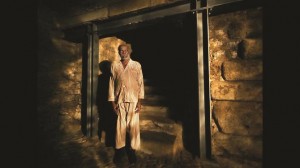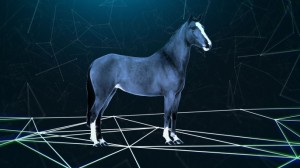Written in September 2014 for my December “En movimiento” column in Caimán Cuadernos de Cine. — J.R.
Last September, I ordered from Amazon a three-disc DVD box set released by Lionsgate called Big History consisting of 17 episodes lasting almost seven and a half hours. My curiosity was spurred by an article by Andrew Ross Sorkin in the New York Times Magazine about billionaire Bill Gates enthusiastically discovering this package — a college course taught by Australian professor David Christian — while working out in his private gym, and then deciding to use this TV series to try to revolutionize the teaching of history in both American high schools and colleges.
To my amazement, and in spite of all my qualms, Big History proves to be one of the most exciting things I’ve seen this year — not as moral instruction or as a technical tour de force (unlike Steven Knight’s Locke, which resurrects the heroism of the great Westerns, or Godard’s Adieu au langage, which reinvents 3-D) and not as distilled and hallucinatory poetry (unlike Pedro Costa’s Horse Money), but as a series of lucid pedagogical lessons, especially welcome for someone like me who has always been weak in science. Simultaneously fresh and hokey, crammed with information that was new to me and riddled with clichéd slogans in its presentation, using a formulaic format in each episode that keeps reverting to a form of self-advertisement resembling a TV commercial, Big History comes equipped with optional Castilian as well as English subtitles, and I can recommend it to Spanish cinephiles as something worth watching as well as brooding about. Compulsively watchable in spite of (or perhaps sometimes because of) its unabashed banality and bravado, it contrives to relate and “explain” the history of the cosmos from the Big Bang to the present and back again through an interdisciplinary web of interconnections between astronomy, chemistry, archeology, geology, biology, physics, and other disciplines. The first 16 episodes, devoted to such topics as salt, water, gold, silver, the sun, the “world of weapons,” and the “rise of the carnivores,” each run about 21 and a half minutes; the final episode — “The Big History of Everything,” 98 minutes long — contrives to give us a chronological recap built around the eight “threshold moments” outlined in the previous chapters. Predictably, the eighth threshold is the present, seen in true Hegelian fashion as a grand culmination (apart from the nagging question of entropy), and the many guesses about what the ninth threshold might be include thermonuclear war and global warming (each accorded the status of a guest-star appearance over a few fleeting seconds). Determined to keep things as digestible as possible, the series repeatedly uses such key words as “secret” and “puzzle” to propel us into a linear narrative in spite of the constant oscillations involving flashbacks and flash-forwards.
Its ambitions and its aggressive hype are laid down in the prologue to each episode: “We think of history as a timeline, a series of events stretching a few thousand years into the past. It’s time to think bigger. Instead of a line, imagine a web of infinite connections interacting over billions of years, linked together to create everything we’ve ever known — our universe, our planet…and us. History as we know it is about to get big.” This narration and the comparably bombastic commentary that follows is accompanied first by fancy, fast-moving graphics and animation and eventually by snippets of unidentified archival footage (much of which gets used repeatedly over the course of the series) and/or various rudimentary historical restagings that represent everything from the building of the Pyramids to Christopher Columbus to people around the globe today speaking on their cellphones to the Big Bang itself to pictures of swarming molecules.
Ideological and metaphysical questions, including the series’ own ideological and metaphysical underpinnings, are studiously avoided, as are intellectual orientations (apart from the basic suppositions of “Big History” itself), so the overall design often suggests a theme-park ride designed to sail us quickly past all the information and interpretations that can be factually challenged. This is worrisome, like the implications that speculative anthropology (for instance) can be used as another form of scientific “evidence”. But it’s also hard not to share Bill Gates’ feeling that he wished his own early schooling in history had some of this sort of excitement and pizzazz.







